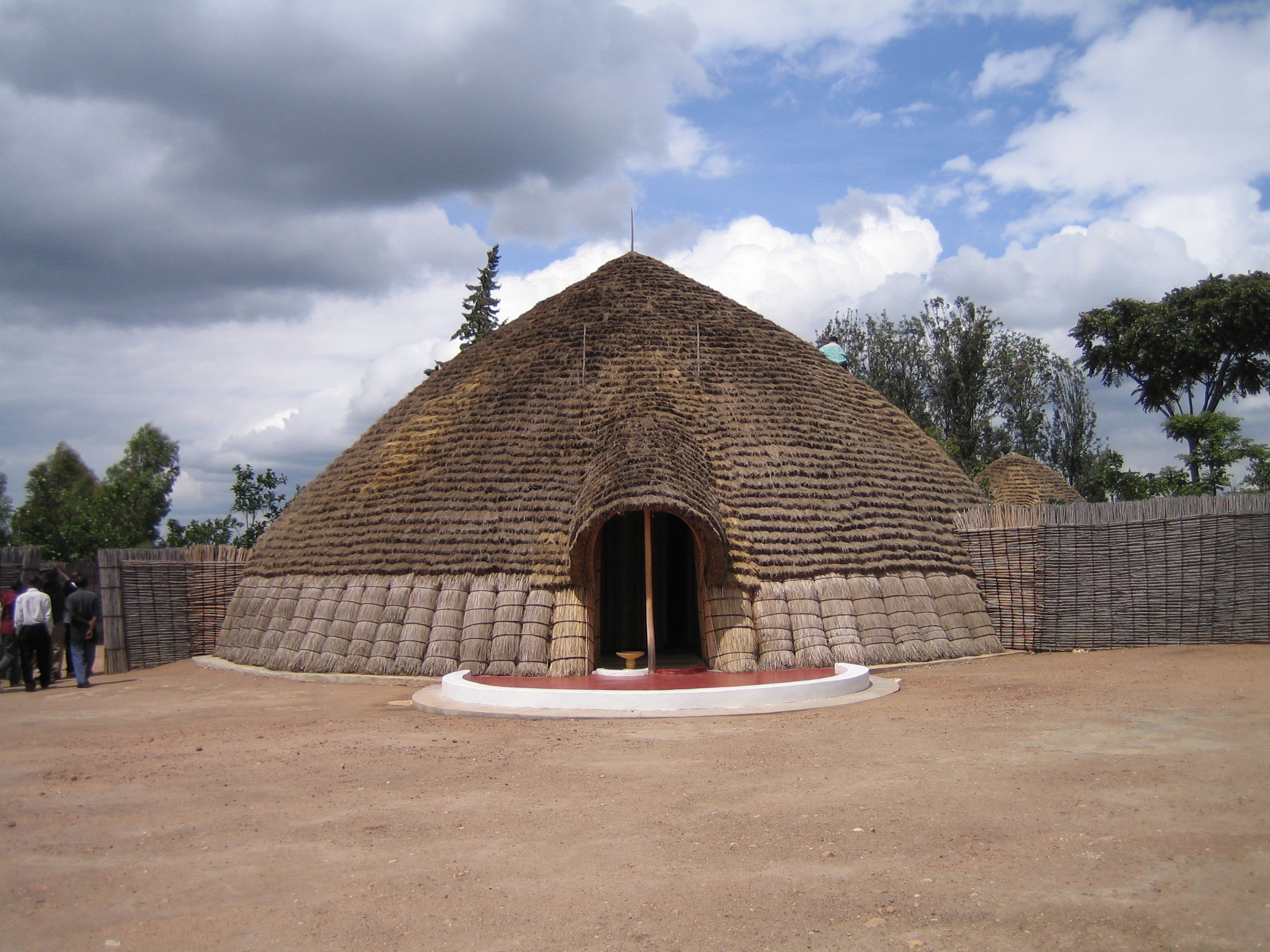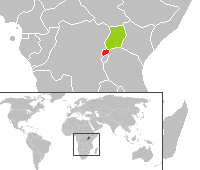|
United Nations Security Council Resolution 872
United Nations Security Council resolution 872, adopted unanimously on 5 October 1993, after reaffirming resolutions 812 (1993) and 846 (1993) on the situation in Rwanda and Resolution 868 (1993) on the security of United Nations operations, the council stressed the need for an international force in the country and therefore established the United Nations Assistance Mission for Rwanda (UNAMIR). Mandate The signing of the Arusha Accords was welcomed and for the efforts of the Organisation of African Unity (OAU) and Tanzania in this respect. The conclusion of the Secretary-General Boutros Boutros-Ghali that the full cooperation of the parties with one another is essential for the United Nations to carry out its mandate. In this regard, UNAMIR was established for a period of six months subject to the proviso that it will be extended beyond the initial ninety days upon a review by the council as to whether progress had been made towards the implementation of the Arusha Accords. It ... [...More Info...] [...Related Items...] OR: [Wikipedia] [Google] [Baidu] |
Provinces Of Rwanda
The provinces of Rwanda (Kinyarwanda: ''intara'') are divided into Districts of Rwanda, districts (''akarere'') and municipalities (''umujyi''). Prior to January 1, 2006, Rwanda was composed of 12 provinces. The Politics of Rwanda, Rwandan government decided to establish new provinces in an attempt to address issues that arose from the Rwandan genocide. The new provinces were to be "ethnically-diverse administrative areas". Until 2002, the provinces were called prefectures (''perefegitura''). Provinces As of January 1, 2006 the five provinces of Rwanda are: Provincial districts and sectors Eastern Province Northern Province Western Province Southern Province Kigali Former provinces Prior to 2006 the provinces were: *Butare Province *Byumba Province *Cyangugu Province *Gikongoro Province *Gisenyi Province *Gitarama Province *Kibungo Province *Kibuye Province *Kigali City (Established as a province in 1990) *Kigali-Rural Province (Kigali Ngali) *Ruhengeri Provi ... [...More Info...] [...Related Items...] OR: [Wikipedia] [Google] [Baidu] |
Demining
Demining or mine clearance is the process of removing land mines from an area. In military operations, the object is to rapidly clear a path through a minefield, and this is often done with devices such as mine plows and blast waves. By contrast, the goal of ''humanitarian demining'' is to remove all of the landmines to a given depth and make the land safe for human use. Specially trained dogs are also used to narrow down the search and verify that an area is cleared. Mechanical devices such as flails and excavators are sometimes used to clear mines. A great variety of methods for detecting landmines have been studied. These include electromagnetic methods, one of which (ground penetrating radar) has been employed in tandem with metal detectors. Acoustic methods can sense the cavity created by mine casings. Sensors have been developed to detect vapor leaking from landmines. Animals such as rats and mongooses can safely move over a minefield and detect mines, and animals can als ... [...More Info...] [...Related Items...] OR: [Wikipedia] [Google] [Baidu] |
1993 In Rwanda
{{Africa-year-stub ...
The following lists events that happened during 1993 in Rwanda. Incumbents * President: Juvénal Habyarimana * Prime Minister: Dismas Nsengiyaremye (until 18 July), Agathe Uwilingiyimana (starting 18 July) Events August * August 4 - The Arusha Accords are signed between President Juvénal Habyarimana and leaders of the RPF in Arusha, Tanzania, ending the Rwandan Civil War. References Years of the 20th century in Rwanda 1990s in Rwanda Rwanda Rwanda Rwanda (; rw, u Rwanda ), officially the Republic of Rwanda, is a landlocked country in the Great Rift Valley of Central Africa, where the African Great Lakes region and Southeast Africa converge. Located a few degrees south of the Equator ... [...More Info...] [...Related Items...] OR: [Wikipedia] [Google] [Baidu] |
1993 United Nations Security Council Resolutions
File:1993 Events Collage.png, From left, clockwise: The Oslo I Accord is signed in an attempt to resolve the Israeli–Palestinian conflict; The White House (Moscow), Russian White House is shelled during the 1993 Russian constitutional crisis; Czechoslovakia is peacefully Dissolution of Czechoslovakia, dissolved into the Czech Republic and Slovakia; In the United States, the ATF Waco siege, besieges a compound belonging to David Koresh and the Branch Davidians in a search for illegal weapons, which ends in the building being set alight and killing most inside; Eritrea gains independence; A major 1993 Storm of the Century, snow storm passes over the United States and Canada, leading to over 300 fatalities; Drug lord and narcoterrorism, narcoterrorist Pablo Escobar is killed by Military Forces of Colombia, Colombian special forces; Ramzi Yousef and other Islamic terrorism, Islamic terrorists 1993 World Trade Center bombing, detonate a truck bomb in the subterranean garage of List of t ... [...More Info...] [...Related Items...] OR: [Wikipedia] [Google] [Baidu] |
Rwandan Genocide
The Rwandan genocide occurred between 7 April and 15 July 1994 during the Rwandan Civil War. During this period of around 100 days, members of the Tutsi minority ethnic group, as well as some moderate Hutu and Twa, were killed by armed Hutu militias. The most widely accepted scholarly estimates are around 500,000 to 662,000 Tutsi deaths. In 1990, the Rwandan Patriotic Front (RPF), a rebel group composed mostly of Tutsi refugees, invaded northern Rwanda from their base in Uganda, initiating the Rwandan Civil War. Over the course of the next three years, neither side was able to gain a decisive advantage. In an effort to bring the war to a peaceful end, the Rwandan government led by Hutu president, Juvénal Habyarimana signed the Arusha Accords (Rwanda), Arusha Accords with the RPF on 4 August 1993. The catalyst became assassination of Juvénal Habyarimana and Cyprien Ntaryamira, Habyarimana's assassination on 6 April 1994, creating a power vacuum and ending peace accords. Gen ... [...More Info...] [...Related Items...] OR: [Wikipedia] [Google] [Baidu] |
Rwandan Civil War
The Rwandan Civil War was a large-scale civil war in Rwanda which was fought between the Rwandan Armed Forces, representing the country's government, and the rebel Rwandan Patriotic Front (RPF) from 1October 1990 to 18 July 1994. The war arose from the long-running dispute between the Hutu and Tutsi groups within the Rwandan population. A 1959–1962 revolution had replaced the Tutsi monarchy with a Hutu-led republic, forcing more than 336,000 Tutsi to seek refuge in neighbouring countries. A group of these refugees in Uganda founded the RPF which, under the leadership of Fred Rwigyema and Paul Kagame, became a battle-ready army by the late 1980s. The war began on 1 October 1990 when the RPF invaded north-eastern Rwanda, advancing into the country. They suffered a major setback when Rwigyema was killed in action on the second day. The Rwandan Army, assisted by troops from France, gained the upper hand and the RPF were largely defeated by the end of October. Kagame, who had be ... [...More Info...] [...Related Items...] OR: [Wikipedia] [Google] [Baidu] |
List Of United Nations Security Council Resolutions 801 To 900
This is a list of United Nations Security Council Resolutions 801 to 900 adopted between 8 January 1993 and 4 March 1994. See also * Lists of United Nations Security Council resolutions * List of United Nations Security Council Resolutions 701 to 800 * List of United Nations Security Council Resolutions 901 to 1000 This is a list of United Nations Security Council Resolutions 901 to 1000 adopted between 4 March 1994 and 23 June 1995. See also * Lists of United Nations Security Council resolutions * List of United Nations Security Council Resolutions 8 ... {{United Nations *0801 ... [...More Info...] [...Related Items...] OR: [Wikipedia] [Google] [Baidu] |
History Of Rwanda
Human occupation of Rwanda is thought to have begun shortly after the last ice age. By the 11th century, the inhabitants had organized into a number of kingdoms. In the 19th century, ''Mwami'' (king) Rwabugiri of the Kingdom of Rwanda conducted a decades-long process of military conquest and administrative consolidation that resulted in the kingdom coming to control most of what is now Rwanda. The colonial powers, Germany and Belgium, allied with the Rwandan court. A convergence of anti-colonial, and anti-Tutsi sentiment resulted in Belgium granting national independence in 1962. Direct elections resulted in a representative government dominated by the majority Hutu under President Grégoire Kayibanda. Unsettled ethnic and political tensions were worsened when Juvénal Habyarimana, who was also Hutu, seized power in 1973. In 1990, the Rwandan Patriotic Front (RPF), a rebel group composed of 10,000 Tutsi refugees from previous decades of unrest, invaded the country, starting the R ... [...More Info...] [...Related Items...] OR: [Wikipedia] [Google] [Baidu] |
Democratisation
Democratization, or democratisation, is the transition to a more democratic Regime, political regime, including substantive political changes moving in a democratic direction. It may be a hybrid regime in transition from an Authoritarianism, authoritarian regime to a full democracy, a transition from an authoritarian political system to a Anocracy, semi-democracy or transition from a semi-authoritarian political system to a democratic political system. The outcome may be Democratic consolidation, consolidated (as it was for example in the United Kingdom) or democratization may face frequent reversals (as happened in Chile). Different patterns of democratization are often used to explain other political phenomena, such as whether a country goes to a war or whether its economy grows. Whether and to what extent democratization occurs has been attributed to various factors, including economic development, historical legacies, civil society, and international processes. Some accounts ... [...More Info...] [...Related Items...] OR: [Wikipedia] [Google] [Baidu] |
United Nations Observer Mission Uganda–Rwanda
The United Nations Observer Mission Uganda–Rwanda (UNOMUR) was a peacekeeping mission established by the United Nations Security Council in Resolution 846 and lasted from June 1993 to September 1994. Its mission was "to monitor the border between Uganda and Rwanda and verify that no military assistance was being provided across it". It was based in Kabale, Uganda and its mandate thus covered 193 miles of border. Countries contributing to UNOMUR included Bangladesh, Botswana, Brazil, Hungary, the Netherlands, Senegal, Slovakia and Zimbabwe. Its chief military observer from June to October 1993 was Brigadier-General Roméo Dallaire of Canada, who later gained fame as Force Commander of the United Nations Assistance Mission for Rwanda during the Rwandan genocide. Dallaire arrived in Uganda in early October 1993, where the liaison officer from the National Resistance Army (NRA) informed him he must be informed of all UNOMUR patrols at least twelve hours in advance and that all pat ... [...More Info...] [...Related Items...] OR: [Wikipedia] [Google] [Baidu] |
Humanitarian Aid
Humanitarian aid is material and logistic assistance to people who need help. It is usually short-term help until the long-term help by the government and other institutions replaces it. Among the people in need are the homeless, refugees, and victims of natural disasters, wars, and famines. Humanitarian relief efforts are provided for humanitarian purposes and include natural disasters and man-made disasters. The primary objective of humanitarian aid is to save lives, alleviate suffering, and maintain human dignity. It may, therefore, be distinguished from development aid, which seeks to address the underlying socioeconomic factors which may have led to a crisis or emergency. There is a debate on linking humanitarian aid and development efforts, which was reinforced by the World Humanitarian Summit in 2016. However, the conflation is viewed critically by practitioners. Humanitarian aid is seen as "a fundamental expression of the universal value of solidarity between people and ... [...More Info...] [...Related Items...] OR: [Wikipedia] [Google] [Baidu] |
Refugee
A refugee, conventionally speaking, is a displaced person who has crossed national borders and who cannot or is unwilling to return home due to well-founded fear of persecution.FAQ: Who is a refugee? ''www.unhcr.org'', accessed 22 June 2021 Such a person may be called an until granted by the contracting state or the |








